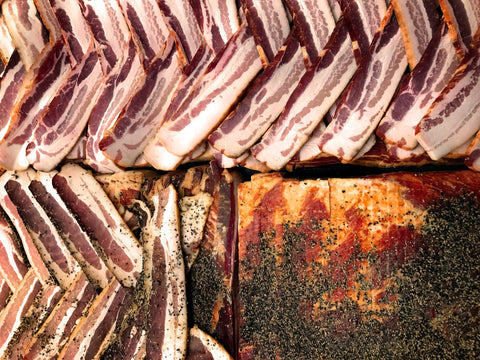To celebrate International Bacon Day on September 4, we’ve rounded up some of the most interesting, lesser known facts about this delicious kind of salt-cured pork. Happy reading!

Bacon is one of the oldest processed meats

The Chinese were the first to cook salted pork bellies more than 3000 years ago (though Central Asia populations are also believed to have enjoyed cured pork meat some 10,000 years ago). This makes bacon one of the world’s oldest processed meats.
Bacon refers to the ‘back’ of the pig

The Romans called bacon petaso and ate it for breakfast and dinner, as it was easy to cook, tasty, and inexpensive. From Rome, the cured food spread to Germany where it became known as bakko, which referred to the back of the pig. Bakko became the French bacco, which the English then adopted around the 12th century, naming the dish bacoun. Back then, the term referred to any pork product, but by the 14th century bacoun referred specifically to cured meat.
Eventually, the word for it would get whittled down to simply bacon.
The phrase "bringing home the bacon" goes back to the 12th century

These days the phrase refers to earning and making money, but its origins have nothing to do with salaries. In 12th century England, churches would award a side of bacon to any married man who swore before God that he and his wife had not argued for a year and a day. Men who "brought home the bacon" were seen as exemplary citizens and husbands.
The first bacon factory opened in England in 1770

In the late 18th century, English businessman John Harris opened the first bacon processing plant in the county of Wiltshire, where he developed a special brining solution for finishing the meat. The "Wiltshire Cure" method is still used today, and gives the meat a sweeter, less salty taste.
Bacon grease was used to make explosives during WWII

During WWII, the U.S. government urged Americans to save excess bacon grease rendered from cooking and donate it to the army to produce glycerin, which in turn created bombs, gunpowder, and other munitions.
